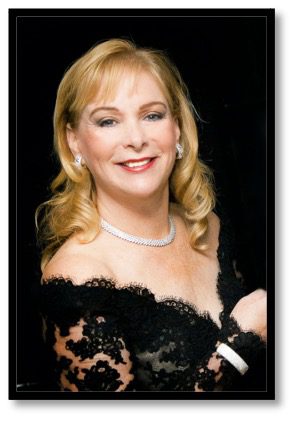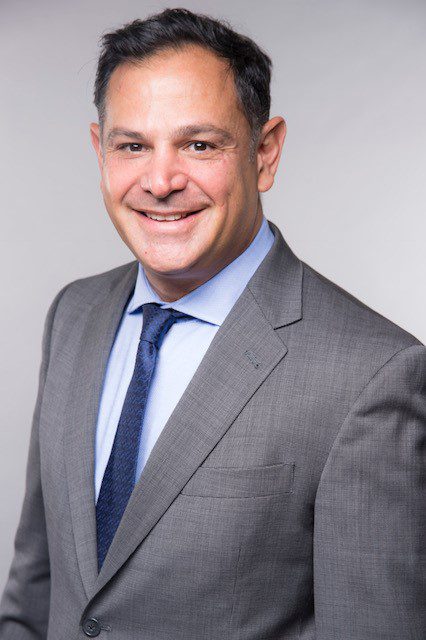Brad Levine, who chairs Florida Atlantic University’s board of trustees and presidential search committee, has drawn criticism from without and within about the search. On two points, however, his defense of the process seems solid.
During last week’s trustees meeting, Vice Chair Barbara Feingold accused Levine of violating the non-disclosure agreement that she, Levine and the other 13 members of the search committee had to sign. Levine’s violation, Feingold said, was publicly defending the search before State University System Chancellor Ray Rodrigues halted it.
But the agreement states that only the chairman “is authorized to speak to the media on behalf of the institution.” Levine thus was within his right. Indeed, it seems more likely that Feingold violated the agreement in several ways.
Under the agreement, committee members must not have “any appearance of real or potential conflict of interest between me and a prospect or applicant…” Feingold arguably has such a conflict concerning State Rep. Randy Fine, R-Palm Bay.
Last spring, Gov. DeSantis’ office approached Fine about applying. In March, the governor’s communications director called Fine “a good candidate.”
Fine served on the appropriations committee that this year approved $40 million for FAU’s proposed dental school. A rendering shows the school named for Feingold’s late husband, former FAU Trustee Jeffery Feingold.
Last week, Barbara Feingold revealed that she is withholding her reported $30 million donation toward the school until she learns who will be FAU’s president. Fine is not one of the three finalists.

Under a new state law that makes searches very secretive, we don’t know whether Fine applied. We do know that a state representative applied. We do know that Fine’s campaign account paid for a meal in Boca Raton on a day the search committee met. We do know that Feingold has made two donations to Fine’s campaigns.
Under the agreement, committee members must make their “primary focus the need of the University to attract the best possible candidate.” All three finalists have experience in higher education administration. Fine has none. Fine once threatened to shut down the University of Central Florida “for five or 10 years” over a financial dispute. UCF is the state’s largest public university, with nearly 60,000 undergraduates.
Under the agreement, committee members must “guard against inaccuracies, carelessness, bias and distortion” and “admit any misrepresentation of information when I become aware” and “correct it promptly and prominently.”
During last week’s meeting, Feingold said of one finalist, former Naval Academy Superintendent Vice Admiral Sean Buck, that he “lied under oath.” Of another, Joseph Sartarelli, Feingold said he faced a no-confidence vote by the trustees as president of the University of North Carolina-Wilmington.
In fact, news reports rebut the idea that Buck lied under oath. And the vote on Sartarelli wasn’t from the trustees. It was from the faculty to censure him for allegedly failing to adequately promote campus goals of diversity, equity and inclusion. The Board of Governors has outlawed so-called DEI policies in Florida.
Under the Legislature’s new and needlessly secretive rules, Levine has overseen a transparent search. At the University of Florida, DeSantis engineered the choice of former U.S. Ben Sasse as president. He was the only finalist. UF trustees and the Board of Governors approved him in pro forma votes.
FAU’s search produced three qualified finalists from roughly 60 applicants. The university announced the names July 5 and had planned campus visits for all three the next week. Two days later, Rodrigues halted the search over what he called “anomalies.” Which brings us to my next item.
Criticism of straw poll for FAU presidency

In his July 7 letter to Levine, Rodrigues criticized the search committee’s decision to hold what amounted to a straw poll of its members. The committee did so, Levine said, to see if there was consensus around a group of applicants.
Though the meeting was private, and thus exempted from the state’s Sunshine Law, Rodrigues called the straw poll “tantamount to a written vote that is not disclosed.” Feingold also criticized the poll, in which committee members listed their top six candidates and sent the results to a consultant.
Last week, however, Levine said that Feingold herself made the “wise proposal” to use the poll. Alan Levine—no relation —“enthusiastically agreed,” Brad Levine said. Alan Levine is the Board of Governors member serving on the search committee. Yet after the finalists were named, Alan Levine criticized the poll and said the search should stop.
FAU General Counsel David Kian sought an opinion about the straw poll from Barry Richard. He was the Florida Press Association’s attorney for 15 years and is considered an expert on the Sunshine Law.
In a July 17 letter to Kian, Richard said, “It is my opinion that the procedure fully complied with the law.” Richard cited correspondence between Kian and the Board of Governors’ general counsel “in which she expressed concern that the survey responses could amount to an unrecorded vote. I believe her concern is unfounded.”
Richard noted that the straw poll results “were not binding and did not eliminate any candidates…” Even if they had been “deemed votes,” Richard wrote, they would have been legal.
Based on Rodrigues’ last letter, that leaves only the issue of a question from the search committee’s consultant about the applicants’ sexual orientation. Levine said the committee did not know about the question and that members never saw the responses. They went only to the consultant.
Feingold has declined interview requests. The State University System refuses to answer even basic questions, such as how long the investigation will take. I will update when there are developments.
Terrence Moore gets high praise in evaluation

Delray Beach City Manager Terrence Moore received a 4.1 percent increase last week and praise from four of his bosses.
It was the second evaluation for Moore since starting in 2021. The results reflected the change in sentiment since the March election brought two new commissioners.
As he did last year, Adam Frankel rated Moore strongly, calling him “a perfectionist.” After an above-average review in 2022, Ryan Boylston upgraded Moore. Previously, Boylston said, he didn’t see the need for Moore to be out in the community as much as he is. “Now I do.”
Angela Burns succeeded Shirley Johnson, who last year gave Moore a failing grade. After just four months, Burns said, she likes what she sees. Rob Long replaced Juli Casale, who had been lukewarm on Moore. Long called him “a top-notch professional,” adding, “I look forward to serving with you for the next several years.”
Mayor Shelly Petrolia acknowledged that she was the outlier. “I don’t see it the same way as my colleagues, but that’s nothing new.” Despite citing areas in which Moore is “falling short,” she voted for the raise.
A year ago, the commission postponed a raise after Moore got those mixed reviews. With this first increase, his annual salary will be just under $240,000.

George Brown’s transition to Boca city manager
Someone has been missing from recent Boca Raton City Council meetings: City Manager Leif Ahnell.
Deputy City Manager George Brown has been filling Ahnell’s chair. I’m told that there’s no backstory. Ahnell has been ceding his public role to Brown as part of the transition that will make Brown Ahnell’s successor next spring. Ahnell has held the job since 1999.
Correction
In Tuesday’s post, I mistakenly placed Loggers’ Run Middle School near Jog and Yamato roads. That’s the location of Omni Middle. Loggers’ Run is on West Palmetto Park Road near Riverside Drive in West Boca.







